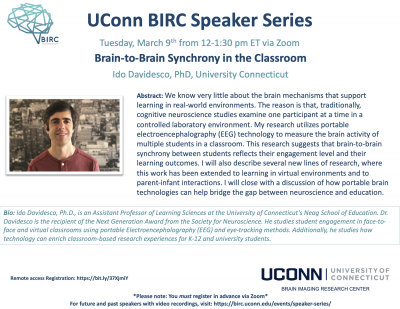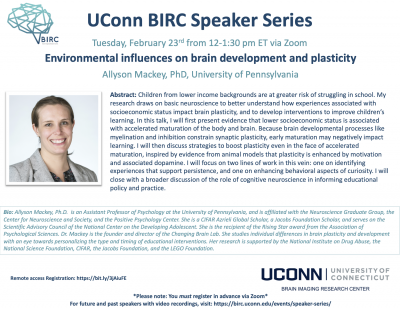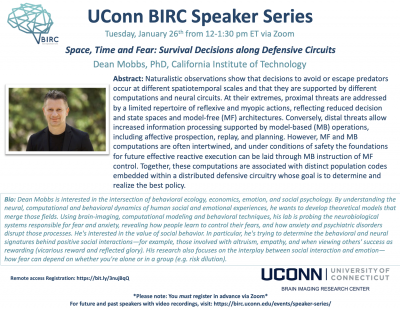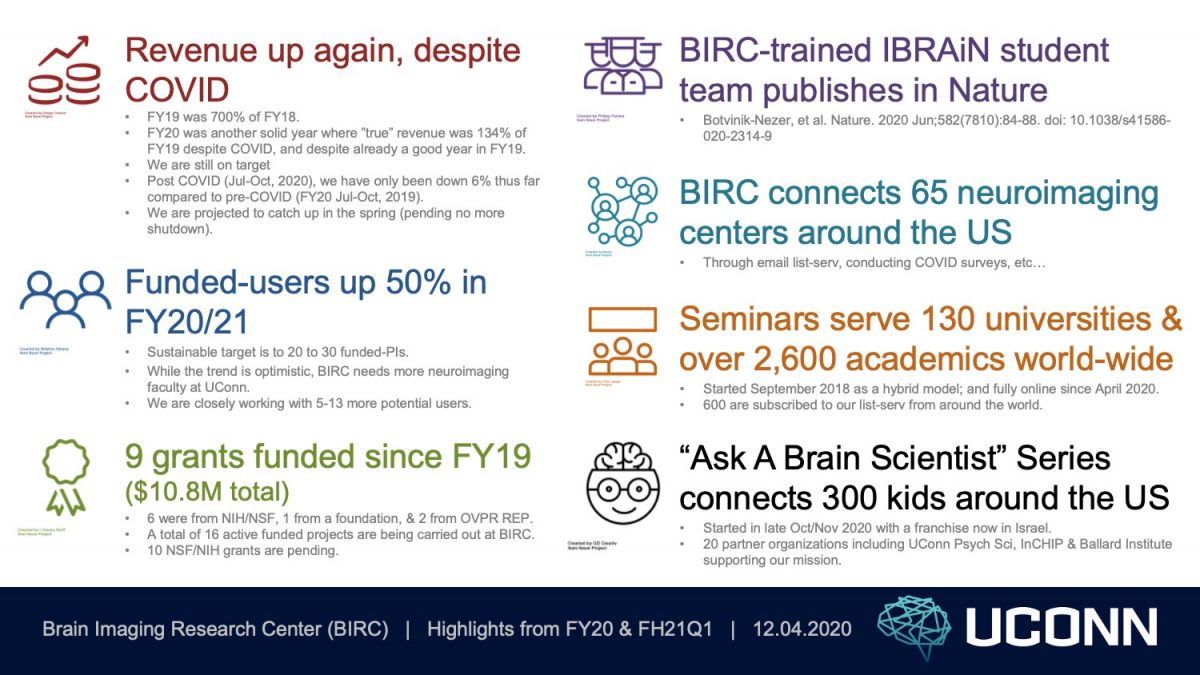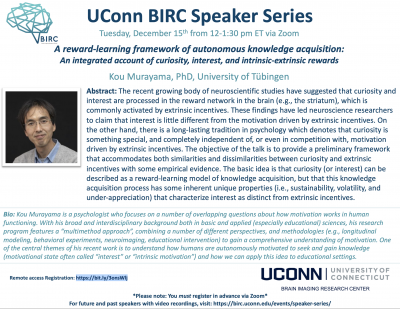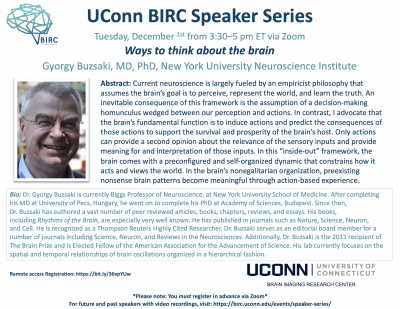Click on the flyer for additional information.
Author: webdev
BIRC Trailblazer Awarded
Congratulations to Margaret Briggs-Gowan, PhD, Xiaomei Cong, PhD, Todd Constable, PhD, Fumiko Hoeft, MD, PhD, Helen Wu, PhD, Damion Grasso, PhD on receiving the BIRC Trailblazer award for their project Preliminary Longitudinal Study of Fetal, Neonatal and Infant MRI!
This proposal will ultimately contribute important foundational knowledge in the following areas: (1) neurodevelopmental outcomes of children exposed to drugs in the prenatal stage that may be dependent on the nature, timing, and dosage of environmental insult in addition to the child’s neurobiological-genetic- genomic factors and resilience/reserve; (2) timing of opportunities and modifiable targets; and (3) assessing underlying mechanisms of substance use disorder and withdrawal symptom across mother-infant/child generations. Ultimately, research such as ours may help to optimize circuit-based precision interventions in these vulnerable children that have rapidly increased in recent years.
Virtual Talk: Allyson Mackey, PhD, UPenn
BIRC awarded CLAS equipment grant for EEG bundle
BIRC has been awarded a CLAS equipment grant for an “EEG Bundle” to be used with BIRC’s hdEEG system. This includes a combination of a Cedrus Stim Tracker and replacement of EEG caps.
The Cedrus Stim Tracker is a tool that accurately aligns the experimental stimuli presented and neuronal activity. While EEG purports to have excellent temporal resolution, it is only true if the experimental stimuli are generated and presented, and neural activity collected in sync. This is not as easy and automated as it should be; currently, even with the latest hdEEG systems, without a tool like the Cedrus Stim Tracker, as much as 30ms of variability is observed that can occur unpredictably and/or drift over time. This is an unacceptable large variability compared to the neural time-scale of a couple of milliseconds. Cedrus Stim Tracker tracks the precise onset and offset of various stimuli for every trial, and marks it directly in the EEG data file. This not only makes the researchers accurately analyze data and prevents “data smear”, but also facilitates data analyses by automating the tedious process of cross-checking and marking data manually. This is now becoming a necessary tool for all EEG experiments, especially those that require fine-grained temporal information, have multi-modal information (e.g. auditory and visual stimuli) delivered to the subjects, and eliminates the complexity and unreliability of other synchronization methods.
Virtual Talk: Dean Mobbs, Caltech
BIRC FY20 Highlights
Virtual Talk: Kou Murayama, Tübingen University
Virtual Talk: Gyorgy Buzsaki, New York University
Ask a Brain Scientist!
In these free sessions, Prof. Fumiko Hoeft will engage with children about the intricacies of the brain. Children (and parents!) will learn about brain science on everyday topics, ask questions they might have, and get a glimpse into how research is done by a scientist.
For kids aged 8-13, but anyone with a child’s heart for learning is welcome!
Each session can stand on its own. When children attend all sessions, they will receive a Junior Neuroscientist certificate.
To register and for more information, please visit Haskinsglobal.org
This program is supported by UConn, UCSF, Haskins Laboratory, Yale University, Made by Dyslexia, and The International Dyslexia Association
NSF Award to Erika Skoe and Emily Myers
Congratulations to Erika Skoe and Emily Myers on their NSF grant Neural predictors of individual differences in speech perception!
